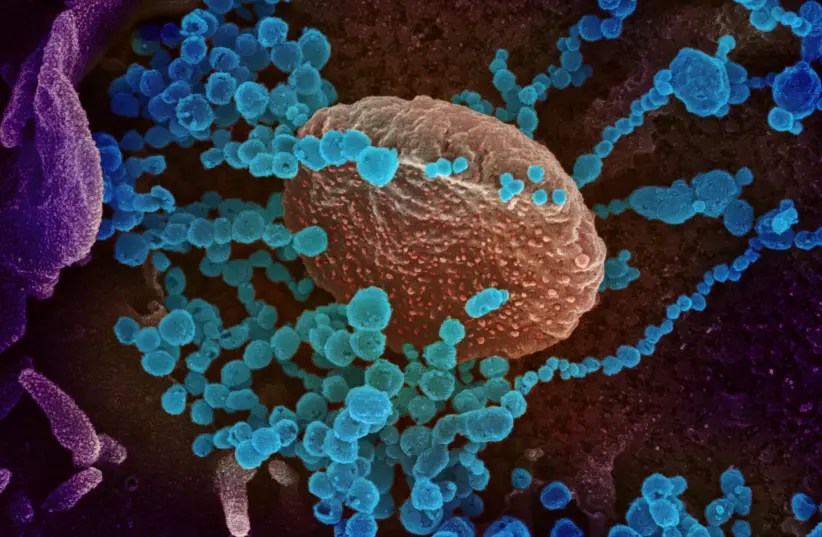You Might Get Restless Anal Syndrome If You Have COVID-19
Scientists from Japan have revealed an incident where a patient has developed “restless anal syndrome” after testing positive for COVID-19.
Initial evidence suggest that the disorder could be related to coronavirus, as indicated by a report released this month in BMC Infectious Diseases journal.

Scanning electron microscope image shows SARS-CoV-2, also known as novel coronavirus
(photo credit: U.S. NIAID-RML/Handout via REUTERS)
The scientists noted that the patient, aged 77, suffered from anxiety and insomnia while suffering from the virus. Then shortly after being discharged, the patient began experiencing restlessness intense anal discomfort.
The patient had constant urges to move, which intensified when rested and increased with exercise but then worsened in the evening. The colonoscopy confirmed the presence of internal hemorrhoids.
Although it’s not clear the mechanism by which COVID-19 triggers neurologic symptoms, there are various cases of neurological problems such as Guillain-Barre syndrome, “brain fog,” and tingling, and other issues linked to coronavirus infections since the beginning of the outbreak.
This condition is a variant of restless leg syndrome (RLS) that has some links with COVID-19 cases. This case is probably the first which links restless anal syndrome and novel coronavirus.
The patient of 77 years old, classified as a mild case of COVID-19, had been admitted at Tokyo Medical University Hospital with cough, sore throat, and a low-grade fever. The patient received treatment for mild pneumonia, insomnia, and anxiety. His respiratory function became normal after 21 days, but the admission, anxiety, and insomnia continued.
After a few weeks of discharge, the patient began experiencing anal discomfort, despite not experiencing the same pain before suffering from COVID-19. Exercise eased his symptoms, whereas sitting down aggravated them.
The researchers confirmed the patient’s diagnosis for restless syndrome following concluding that his symptoms fit the criteria but failed to identify any other reason for the disorder. There was no rectal or bladder disturbance, or signs of Erectile Dysfunction were detected on the part of the patient. The neurologic tests did not reveal any abnormalities, and the patient was not suffering from a family medical history of RLS or limb movements that were irregularly occurring.
The patient’s symptoms improved after treatment every day by taking 1.5 milligrams of Clonazepam, a drug used to treat seizures and panic disorders.
The researchers emphasized that the neuropsychiatric consequences that last for a long time of COVID-19 are still a mystery. It is still not known how the new coronavirus triggers these effects. They urged monitoring for the long-term impacts to better understand the mechanisms that cause these effects and also believed that the COVID-19-related RLS and RLS variants could go unnoticed during a check-up.
Since the mid-point of the previous year, Researchers have discovered that patients who were not significantly infected developed neurological problems ranging from brain inflammation to the delirium stage to strokes and nerve damage.
Also read about Free POCARI SWEAT for Home isolating COVID-19 Patients
